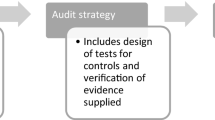Abstract
The EU AI regulatory framework and corresponding AI Act, call for stronger ‘product safety regime’ for AI development and set out requirements for more testing, transparency, and impact evaluation in AI based systems, along with significant penalties for corporations that do not follow these requirements. Similar rhetoric is emerging from the UK and USA governments. There is an immediate emerging theme within AI looking at how to test and how to audit compliance within these evolving requirements. This paper presents a metadata model to support auditing compliance and capturing key attributes of bounding of applicability of AI elements to support compliant reuse within AI systems development. The metadata model builds on the IEEE Learning Object Metadata (LOM) model standard to develop the AI-LOM, which provides a base for compliance within the ISTQB’ AI Development Framework’ covering testing of AI.
Access this chapter
Tax calculation will be finalised at checkout
Purchases are for personal use only
Similar content being viewed by others
References
Adams, C.: Unpicking consciousness: Break away from human-only view. In: The 12th Conference on Towards the Science of Consciousness Conference, Dayalbagh, Agra, India (2013a)
Adams, C.: Rethinking the consciousness and intelligence singularity. In: The 12th Conference on Towards the Science of Consciousness Conference, Dayalbagh, Agra, India (2013b)
Barker, J.: What is IEEE Learning Object Metadata. CETIS. (2002). http://publications.cetis.org.uk/wp-content/uploads/2011/02/WhatIsIEEELOM.pdf
Bostrom, N.: Superintelligence: Paths, Dangers, Strategie. OUP (2016)
Chalmers, D.J.: The character of consciousness. OUP (2010)
Chalmers, D.J.: How can we construct a science of consciousness? In: Michael, G (Ed.) The Cog. Neurosciences III, pp.1111–1120 (2013). https://doi.org/10.1111/nyas.12166
EU AI (2023). AI regulatory Framework. From https://digital-strategy.ec.europa.eu/en/policies/regulatory-framework-ai
EU AI Act EU Artificial Intelligence Act: The European Approach to AI (2023). https://futurium.ec.europa.eu/
Gao, J., Tao, C., Jie, D., Lu, S.: Invited paper: what is AI SOFTWARE testing? and why. In: 2019 IEEE International Conference on Service-Oriented System Engineering (SOSE), San Francisco, CA, USA, pp. 27–2709 (2019). https://doi.org/10.1109/SOSE.2019.00015
Geist, E.M.: It’s already too late to stop the AI arms race—we must manage it instead. Bull. At. Scientists 72(5), 318–321 (2016)
ISTQB Certified Tester AI Testing (CT-AI) Syllabus Version 1.0 (2021). https://astqb.org/assets/documents/ISTQB_CT-AI_Syllabus_v1.0.pdf
Shear, J., Varela, F.J.: The View from Within: First-person Approaches to the Study consciousness. Imprint Academic (1999)
Varela, F.J., Engel, J.: Sleeping, Dreaming, and Dying: An Exploration of Consciousness. Wisdom Publications (1997)
Wright, J.: AI testing. BCS Software Testing Interest Group Conference. London (2023)
Whitehouse (2022). https://www.whitehouse.gov/ostp/ai-bill-of-rights/
Acknowledgements
This research was supported by UKRI Transformative Tech. Grant No.10074452.
Author information
Authors and Affiliations
Corresponding author
Editor information
Editors and Affiliations
Rights and permissions
Copyright information
© 2023 The Author(s), under exclusive license to Springer Nature Switzerland AG
About this paper
Cite this paper
Adams, C., Eslamnejad, M., Khadka, A., M’manga, A., Shaw, H., Zhao, Y. (2023). Auditing AI Systems: A Metadata Approach. In: Bramer, M., Stahl, F. (eds) Artificial Intelligence XL. SGAI 2023. Lecture Notes in Computer Science(), vol 14381. Springer, Cham. https://doi.org/10.1007/978-3-031-47994-6_22
Download citation
DOI: https://doi.org/10.1007/978-3-031-47994-6_22
Published:
Publisher Name: Springer, Cham
Print ISBN: 978-3-031-47993-9
Online ISBN: 978-3-031-47994-6
eBook Packages: Computer ScienceComputer Science (R0)




